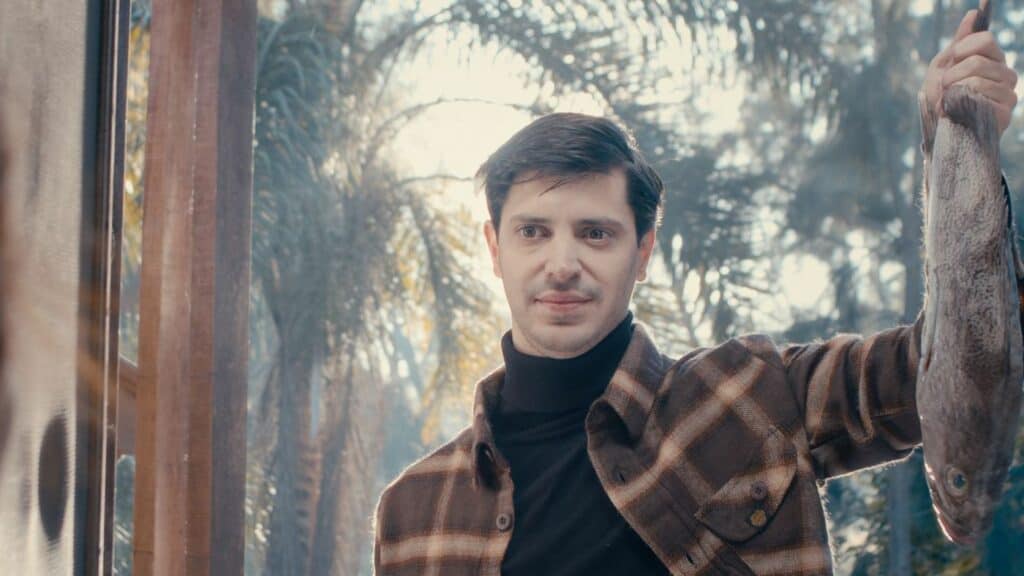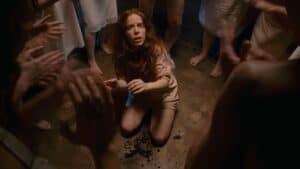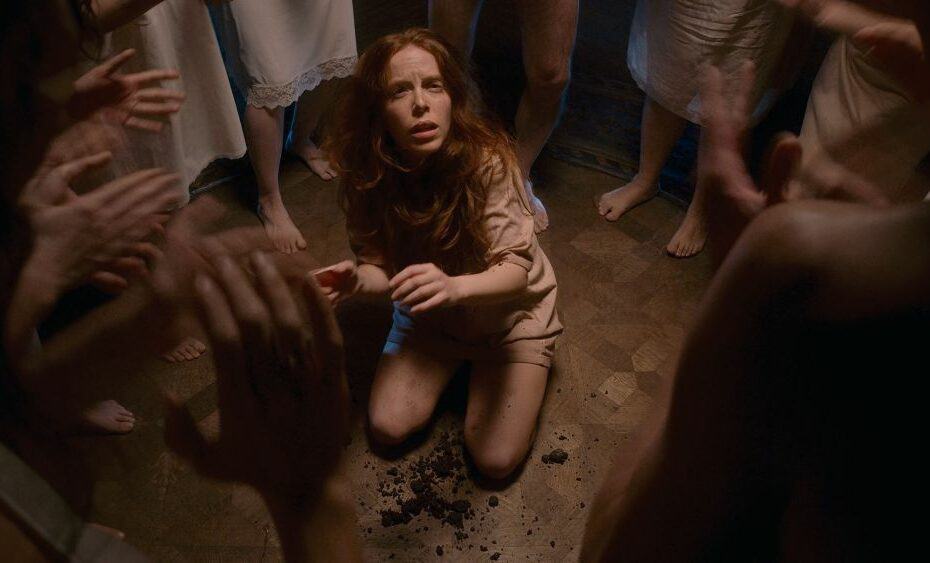Who knows? Not me
We never lost control
You're face to face
With...
A Sip of Hell (UnTrago de Infierno) is the first directorial collaboration between Pilar Boyle and Mariano Asseff. The former also plays the central part, Niko, and also wrote the script. The same does not go for Niko, who is an actress deeply frustrated by the scripts she’s given to work with. She has a regular gig in a TV comedy show, which she thinks squanders her talent. She complains about the situation to her manager, Andrea, and tells her that she wants a project that would make her “feel something”. The managerial solution is handed to Niko in the form of a new script for a first feature. Could this be the challenge the thespian sorely needs?
Taking Andrea’s advice, Niko leaves the city and retreats to a summer house in an apparently idyllic area. The script is weird, and the part she is supposed to play is a mother who primarily doesn’t seem to have her child’s best interest in mind. Suddenly, her exploration of the script is interrupted by Rafa (Ignacio Torres), who stands outside her door holding a fish in his hand, which he offers for a meal. He will soon become increasingly invasive. Is he alluring, or may he be a serious threat to Niko? Alternatively, is his intrusive nature not necessarily something unwished for, and most importantly, does he even exist? What is even unquestionable in this exposition of reality and imagination?

A Sip of Hell as seen before
Already from the beginning, the boundaries between perceived reality and fantasy are fuzzy, with a long BDSM scene with Niko enjoying (?) being whipped by the mysterious Yoki (Julieta Lloret). Many aspects of this scene feel unrealistic (or oneiric), including the lighting and Yoki’s looks. One could ask what is real or imaginary, but it might be beside the filmmaker’s point. A grouchy spectator might ask what the point is with the repeated visions of submissiveness with scatological elements that Niko seems to be subjected to. If these elements are described as hallucinatory or tedious, it depends on the disposition of the spectator. Has Niko been consuming too much Pasolini, or is the pressure of her profession killing her from within?
The Woman Who Sold the World
For this viewer, a point is reached where the answers to those questions don’t matter anymore. The relationship between Niko’s troubled mind and reality is depicted as too tenuous to matter anymore. The film boasts plenty of virtues, the strongest being Pilar Boyle’s acting. Several images are also memorable, but the outcome is less than the sum of its parts. There are numerous quotes and recitals, one of which seems to be a variant of a very famous song. Where some viewers might see a feminist portrait of self-discovery, I would rather feel inclined to label the whole affair as self-indulgent and muddled. Still, there are enough strong elements to look forward to the directors’ future endeavours.

If all the elements of the film had been as strong as the lead actress’ performance, A Sip From Hell would have been a knock-out. As it stands, it is a film well worth seeing, even if it might seem meandering and mind-numbing once you get its major Tom points. It should still be able to travel to other festivals that welcome experimental and challenging fare.
A Sip of Hell had its world premiere in the Rebels With a Cause section at the 2024 Black Nights Film Festival.
A Sip of Hell

Director: Mariano Asseff, Pilar Boyle
Date Created: 2025-09-14 00:04
3.5
Pros
- Some intriguing imagery
Cons
- Doesn't reach its goals.

